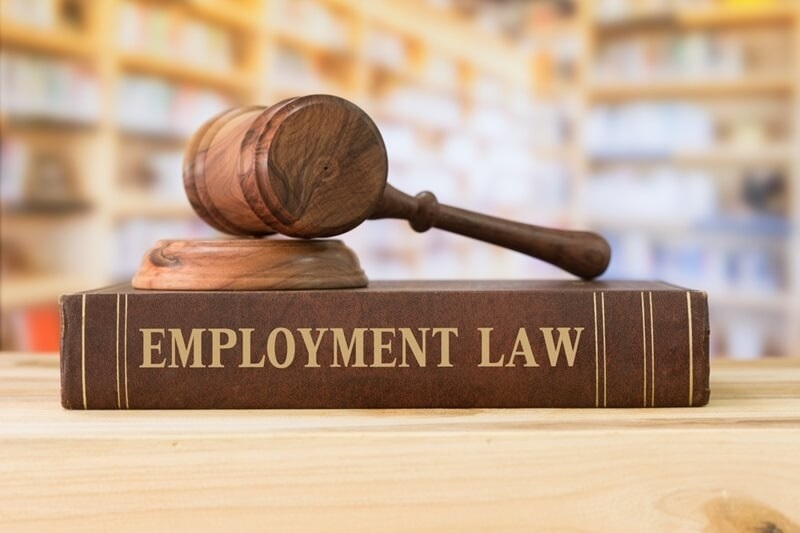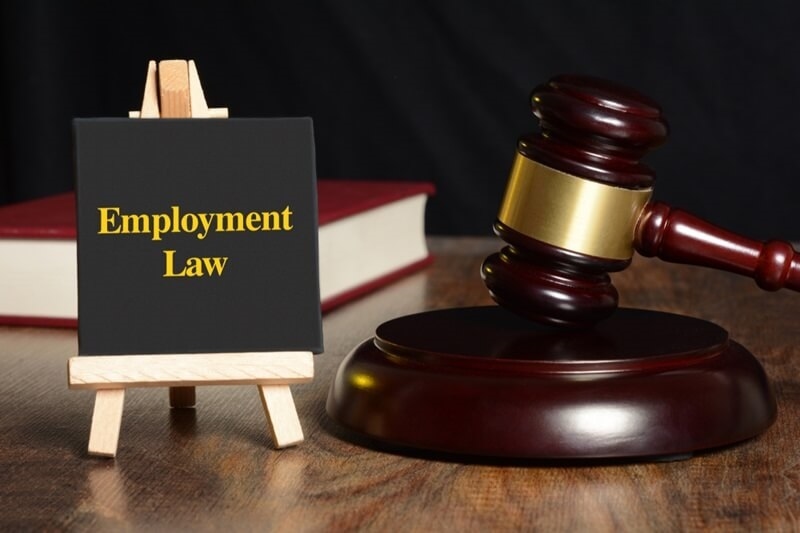Legal Topics

What Are the Employment Laws Protecting Worker Rights?
In contemporary jobs, it is not an ideal to be fair, respected, and equal, but a legal right. All workers in the United States are under the employment laws, which aim at ensuring fair treatment of employees by the employer. These laws provide you with a safety-net, regardless of whether you are part-time, under the age of 18 or having a disability; these laws support your dignity in the workplace. The knowledge of these protections is to enable employees to be knowledgeable of their rights and the obligatory attributes of their employers. Today, in this blog, we will discuss what the employment laws are that protect the workers, how these work in safeguarding various categories of workers, such as minors, people with disabilities, as well as part-time workers and the reason why the employment laws still influence the creation of a safer and more inclusive workplace.
Understanding What Are The Employment Laws

The United States employment law is an entrapment of both federal and state rules that seek to guard employees against unfair treatment, unhealthy environments and discrimination. Such laws constitute the basis of the contemporary working environment as they provide equality, reasonable wages, and safe working conditions to everyone.
Purpose Of Employment Laws
The fundamental principles of employment laws are to achieve equilibrium between the employer and employees. They aid in ensuring accountability and transparency, as the workers would not have been exploited or discriminated against. It may be on how one gets paid on time, works in a safe environment, or is treated equally; this is the power of these laws as a shield.
Key Federal Employment Laws
The worker protection in the U.S. is based on a number of significant laws. These include:
- Fair Labour Standards Act (FLSA): Provides the minimum wage, overtime compensation and child labor.
- Occupational Safety and Health Act (OSHA): Stipulates healthy and safe working environments.
- Equal Pay Act: It prohibits discrimination in relation to pay due to gender.
- Family and Medical Leave Act (FMLA): It grants eligible employees the right to have unpaid leave either for family reasons or health reasons.
- Civil Rights Act (Title VII): Disallows any discrimination in the workplace in terms of race, colour, religion, sex or national origin.
Employment Laws For People With Disabilities
Living with a disability should never limit one’s professional opportunities. Thankfully, the U.S. has strong employment laws that protect workers with disabilities from discrimination and provide them with fair access to employment and advancement.
Americans With Disabilities Act (ADA)
The Americans with Disabilities Act (ADA) is one of the most significant pieces of legislation for workers with disabilities. It ensures that individuals with disabilities have the same employee rights and opportunities as everyone else. Employers are required to provide reasonable accommodations—like modified workstations, flexible schedules, or assistive technologies—so that employees can perform their jobs effectively.
Equal Employment Opportunity Protections
The Equal Employment Opportunity Commission (EEOC) enforces laws that prohibit discrimination against qualified individuals with disabilities. Employers cannot refuse to hire or promote someone simply because of a disability. Instead, they must focus on a person’s skills, talents, and ability to perform essential job functions.
Don't miss: The Importance Of The Department of Employment and Labor
Employment Laws For Under 18
For teenagers and young workers, getting a first job is an exciting milestone. But it’s also essential that they are protected from unfair treatment or dangerous working conditions. Employment laws for under-18s play a crucial role in shaping safe and educational early work experiences.
Fair Labor Standards Act (Child Labor Provisions)
The FLSA includes strict child labour rules to protect minors. These laws define what jobs young workers can do, how many hours they can work, and when they can work. For example, children under 14 generally cannot be employed in non-agricultural jobs, while those aged 14–15 can work limited hours in safe environments like offices or retail stores.
Limits On Working Hours
The law ensures that minors are not overworked or placed in unsafe conditions that could interfere with their education. For instance, during school days, younger teens can only work a few hours, and not during late-night shifts.
Encouraging Safe Learning Environments
These rules not only protect young workers physically but also emotionally. The early work years can shape one’s attitude toward future careers, so these protections ensure young people learn responsibility in a supportive, fair, and secure setting.
Employment Laws For Part-Time Workers
Part-time work is common in the U.S.—from students balancing studies to parents managing family responsibilities. However, part-time employees often worry about their rights and benefits.
Fair Pay And Overtime Rules
Under the Fair Labour Standards Act, part-time employees must be paid at least the federal minimum wage. If they work more than 40 hours a week, they are generally entitled to overtime pay, just like full-time workers. These part-time employment laws make sure no worker is underpaid or exploited for extra work.
Equal Treatment And Non-Discrimination
The same anti-discriminatory legislation that complements full-time employees also protects part-time workers. They cannot be denied the opportunity or benefits by the employer due to race, gender, age, disability or any other characteristic that is a prohibited characteristic. This is so that there is equality in every way of employment, be it hiring or promotion.
Benefits And Job Security
Although part-time workers do not necessarily get benefits similar to those of full-time workers, prorated benefits such as paid time off or health insurance are becoming common in most companies. Labour laws are developed to motivate employers to treat their part-time employees more appropriately and also offer safe and non-discriminatory working conditions in which they can perform.
Workplace Safety And Health Rights
Safety at the workplace is not an option; it is a right. Your employer will be required to observe high standards of safety, whether at the office, factory or construction site, to eliminate accidents and injuries.
OSHA And Workplace Safety
Occupational Safety and Health Act (OSHA) ensures safety by establishing laws and regulations that provide safe working conditions to workers. The roles involved in the provision of protective apparatus and competent training, as well as safe workplaces, are the duties of the employers. In their turn, the employees can report about the unsafe conditions without fearing retaliation.
Mental Health And Well-Being
Mental health is becoming an important consideration in modern employment laws. Physical dangers cannot be as dangerous as stress, burnout, and unhealthy surroundings. To facilitate emotional health in the workplace, most firms are currently providing mental health programs, flexible work hours, and workplace counselling.
Conclusion
The employment laws are not just mere guidelines enshrined in the law, they are commitments to fairness, equality and upholding human dignity. Since there exist employment laws that protect and give power to the American worker, such as employment laws that cover people with disabilities, employment laws that cover under-18s, and employment laws that cover part-time employment, there is always a reason behind them. In the ever-evolving world, a question most appropriate is what are the employment laws and how can the employee and the employer come up with a world that regards safety, diversity and opportunity with the highest importance.
Current Topics
1. How to Choose the Best Personal Injury Lawyer in the USA?
A personal injury lawyer...
2. How to Find the Right Attorney and Choose the Best Lawyer
Finding the right attorn...
3. Healthcare Compliance Rules Every Legal Pro Must Know
Here's the thing. Health...
4. AI ChatGPT Tools in Artificial Intelligence for Lawyers
The world of law is evolving at a pac...
5. What Are the Employment Laws Protecting Worker Rights?
In contemporary jobs, it...
6. Financial Resilience Explained for Stability & Success
Money is so cumulative i...
7. What Are Gig Economy Jobs? Legal Rights You Must Know
The way people work has changed drama...
8. Rights & Mediator's Role in Pregnancy Child Support 2025
The first idea that will come to the ...
9. Digital Courtrooms: VR Evidence & Remote Trials in 2025
Once upon a time, courtrooms were all...
10. How to Find a Good Lawyer Made Simple for Beginners
The first question that ...
